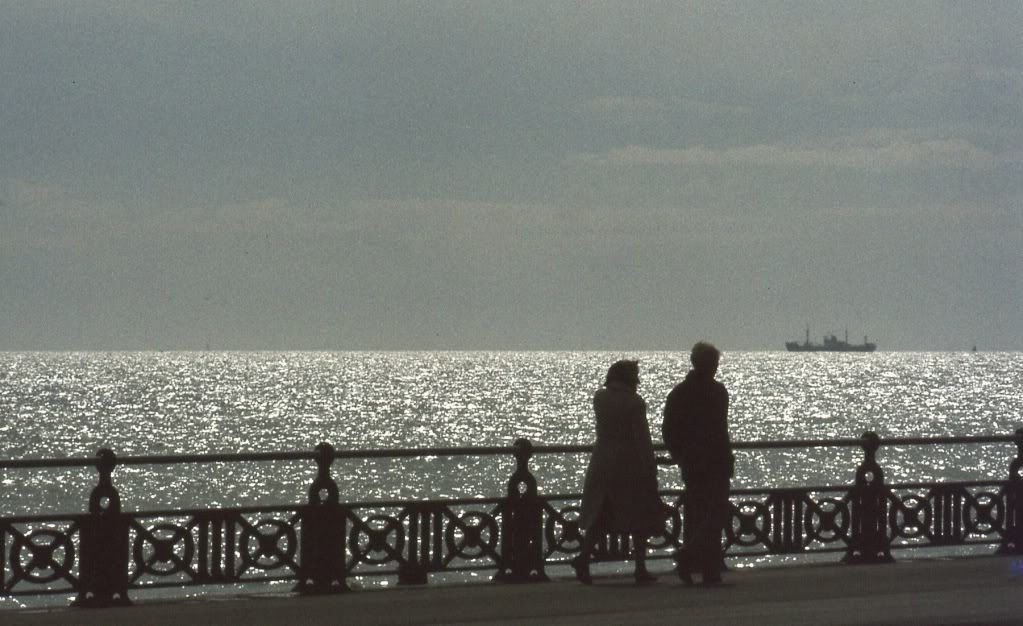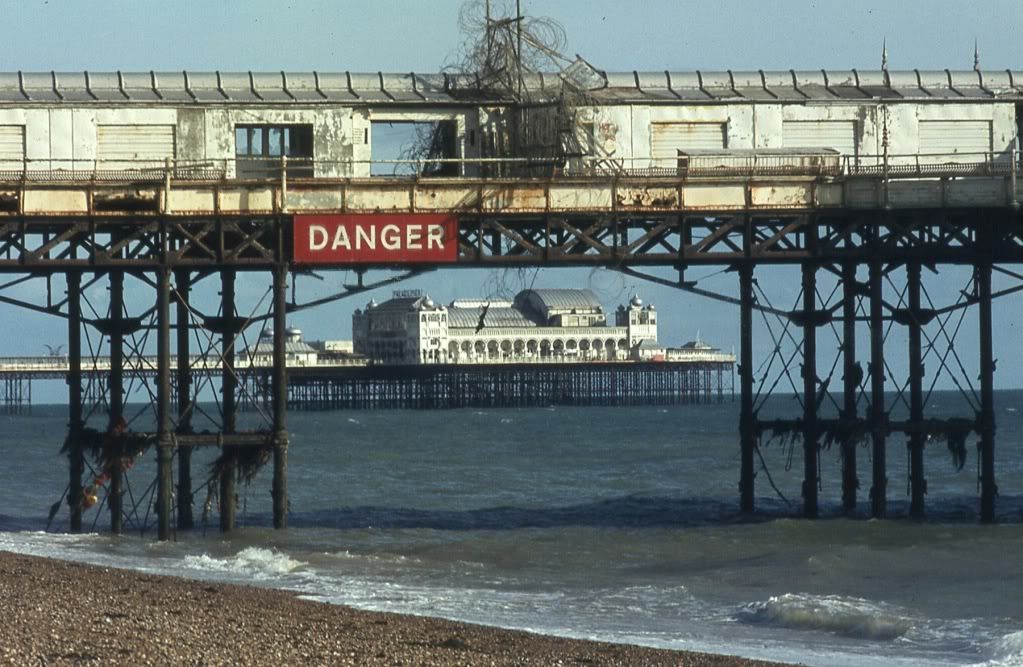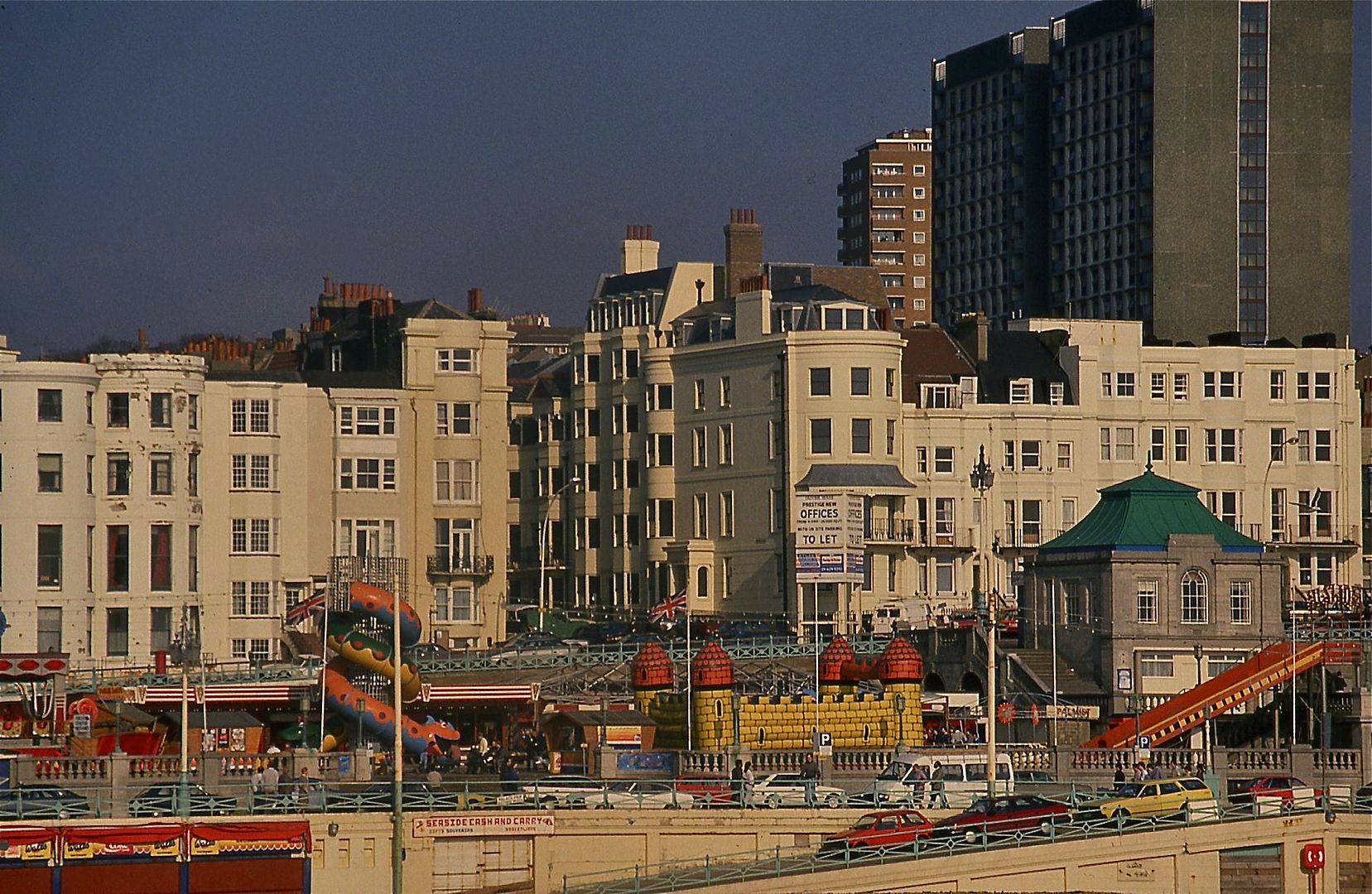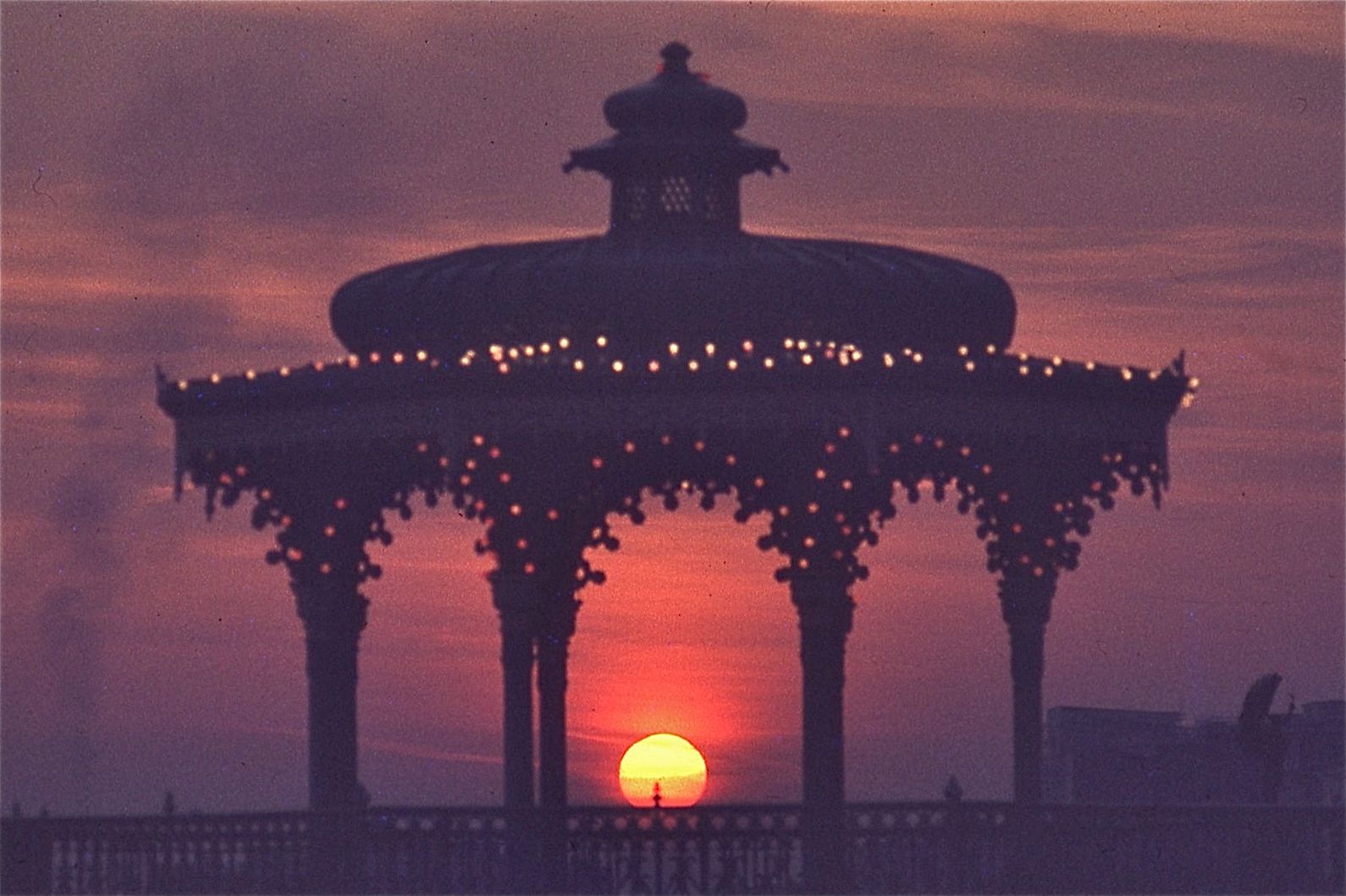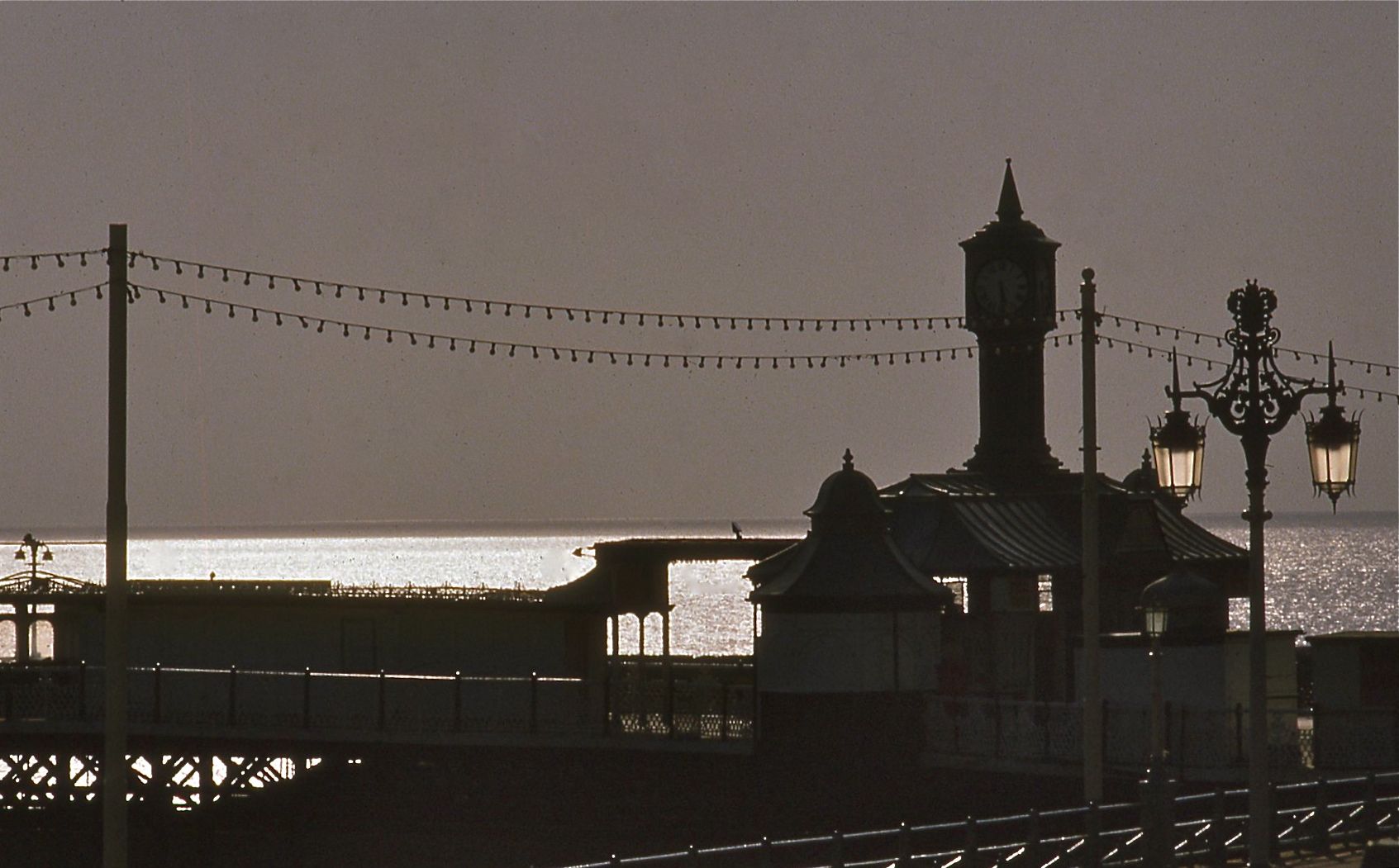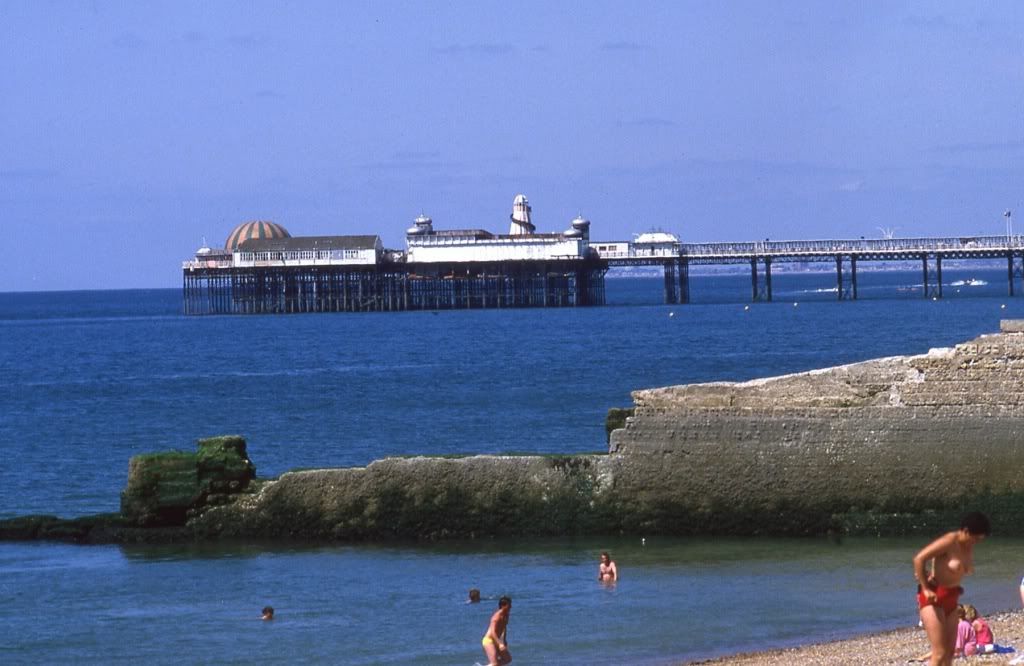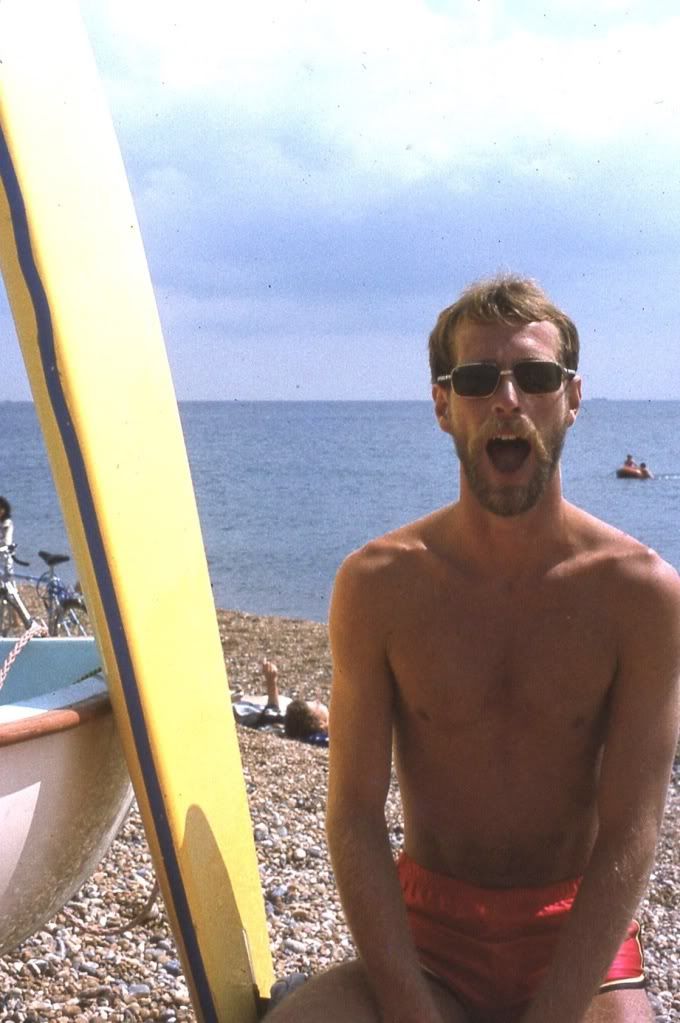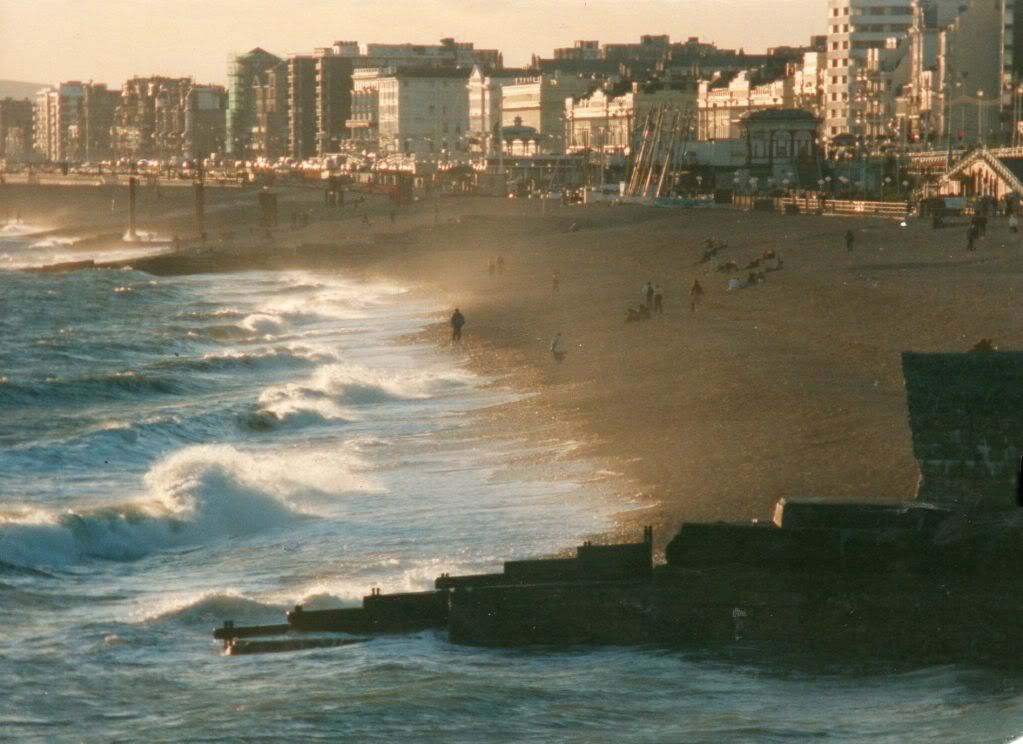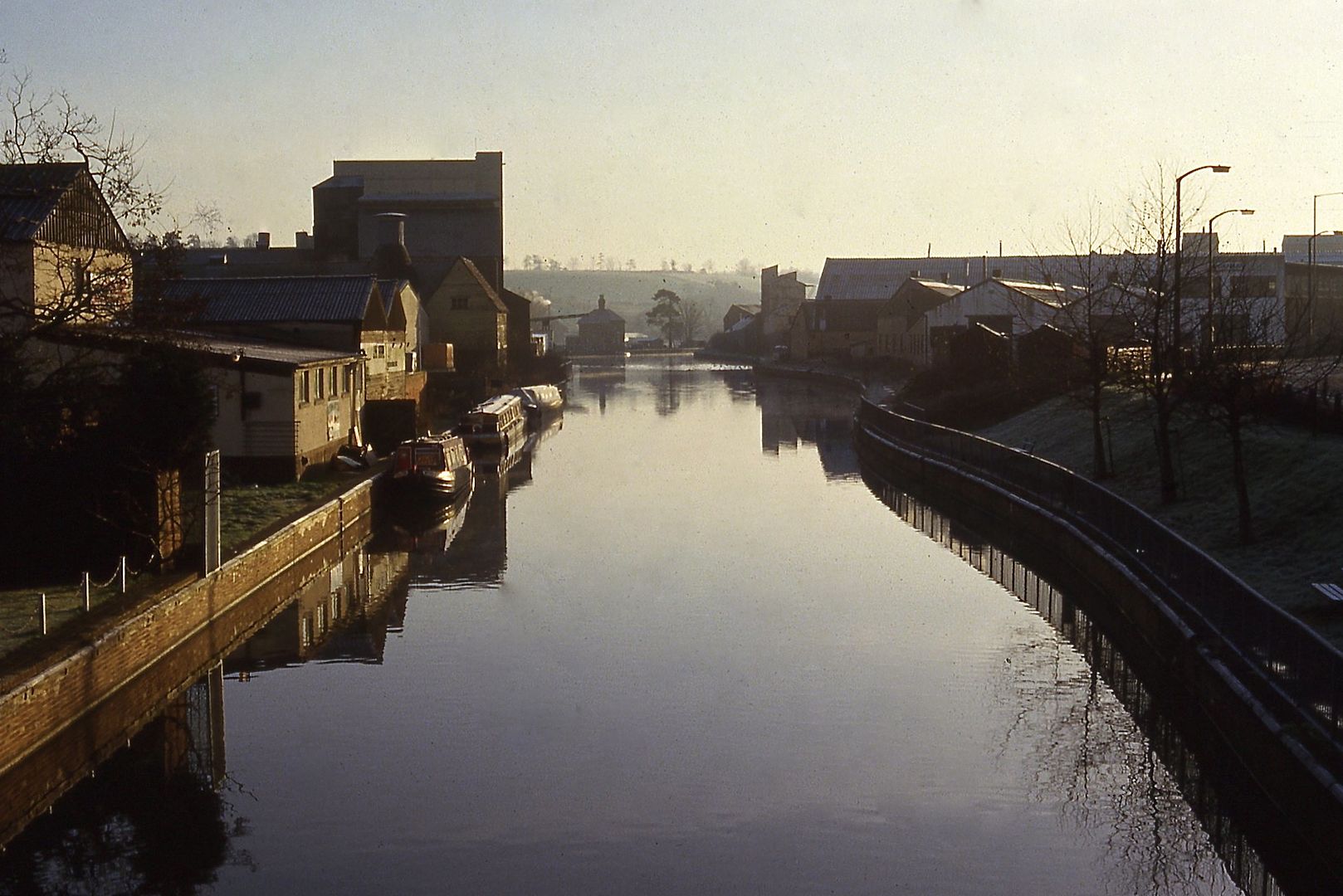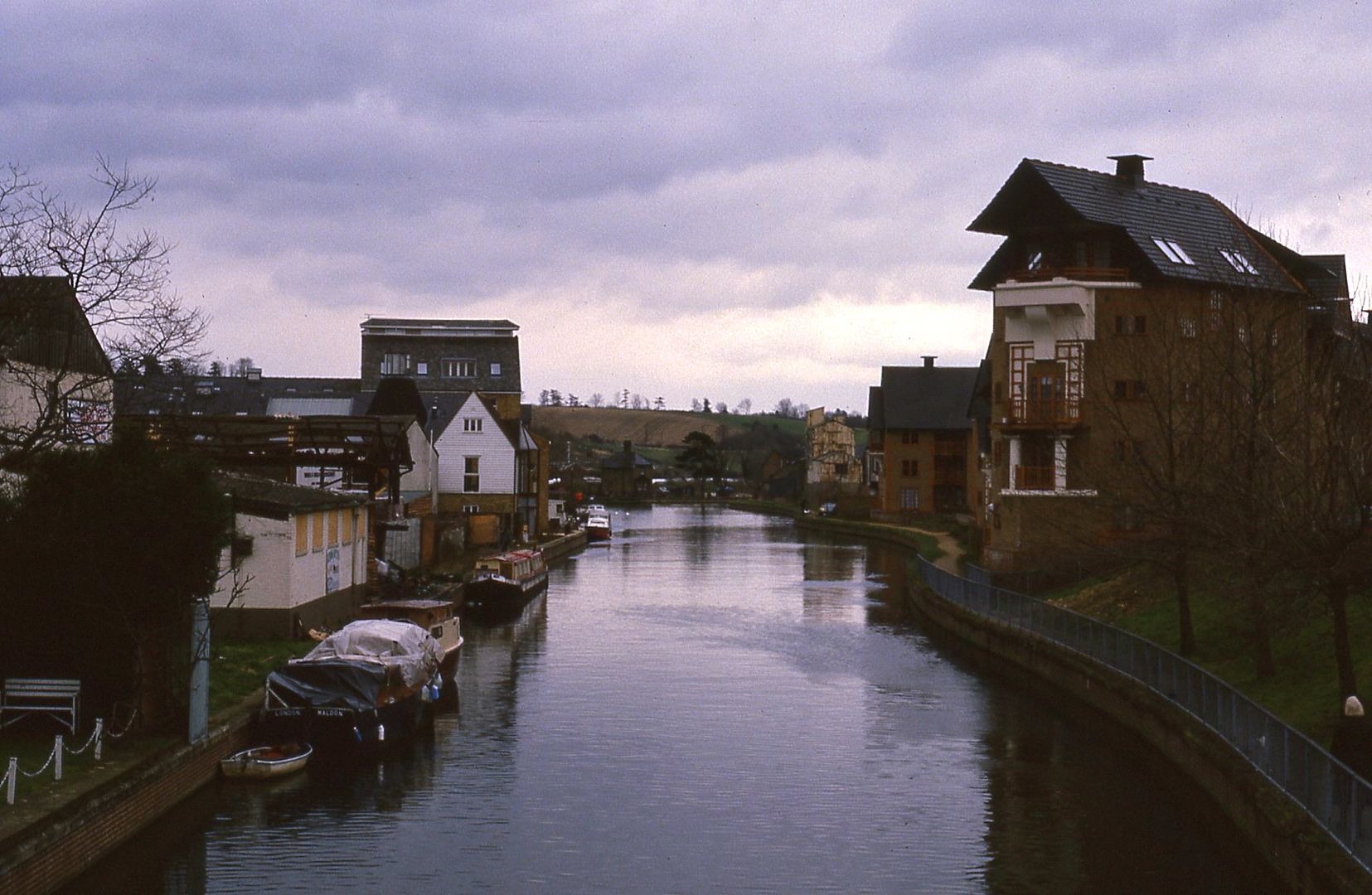The Granger family moved from Tottenham to Ware, Hertfordshire, at the end of 1964. It was only 20 miles away, but it was very much another world, very rural and almost deathly quiet after London. I carried on going back to Tottenham for school, and spent most of the weekends in London, too, being a teenager. In 1966, I went off to university in Canterbury and never went back to Ware to live. I didn't live in it long enough to love it, but I came to appreciate it more as a visitor.
The River Lea runs through the town from west to east, before it makes its decisive turn south to the Thames
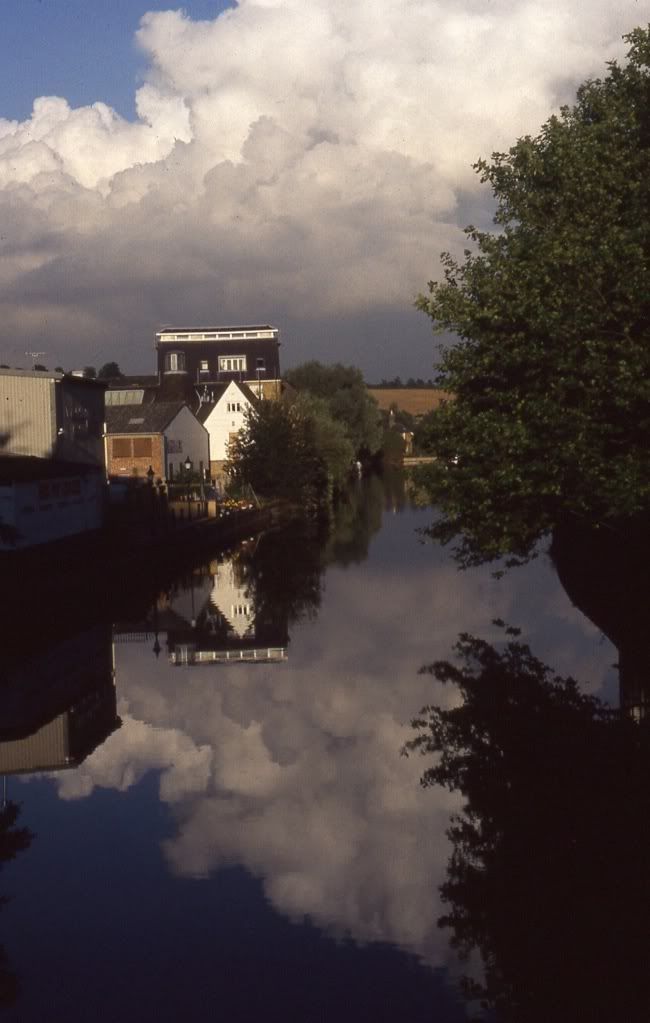 |
Every time I went back to Ware to visit my mother, I made an effort to take a view east from the bridge towards the lock-keeper's cottage. I did it at first in a halting tribute to my father, who had died on the bridge in 1967, but it got
to be a habit, seeing how many moods I could wring out of the same subject. I'm sure I've taken more pictures
of the changing view over the last 40 years (my mother still lives there) than any other location |
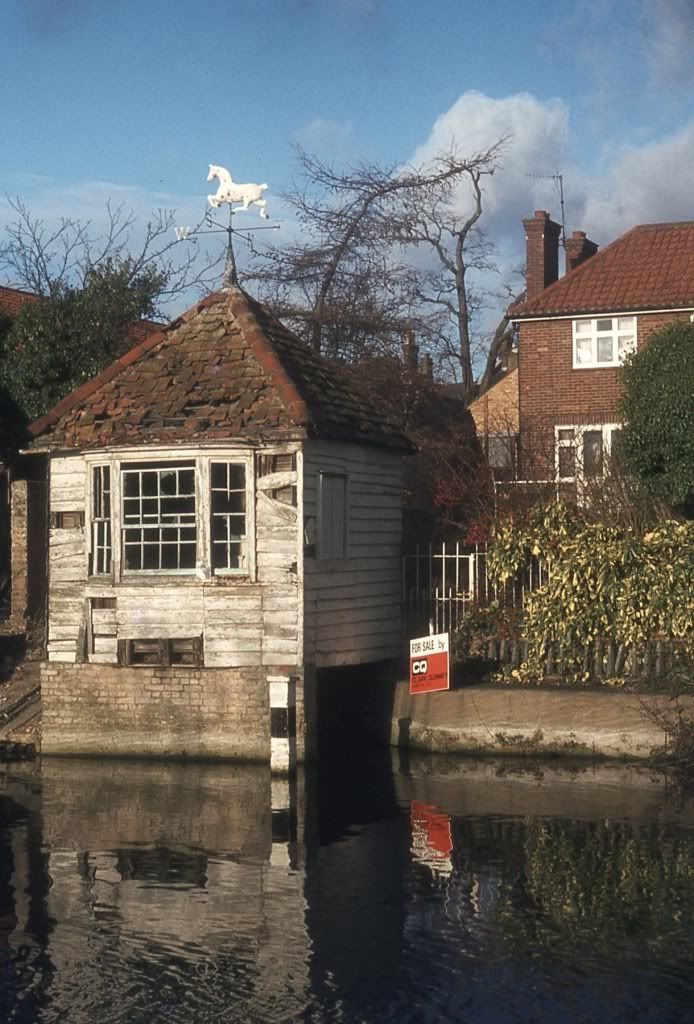 |
West of the bridge, on the north bank of the river, was a range of beaten-up,
dilapidated gazebos, built in the long gardens of the coaching inns ranged
along the High Street beyond – Ware was a coaching stage between
London and Cambridge. |
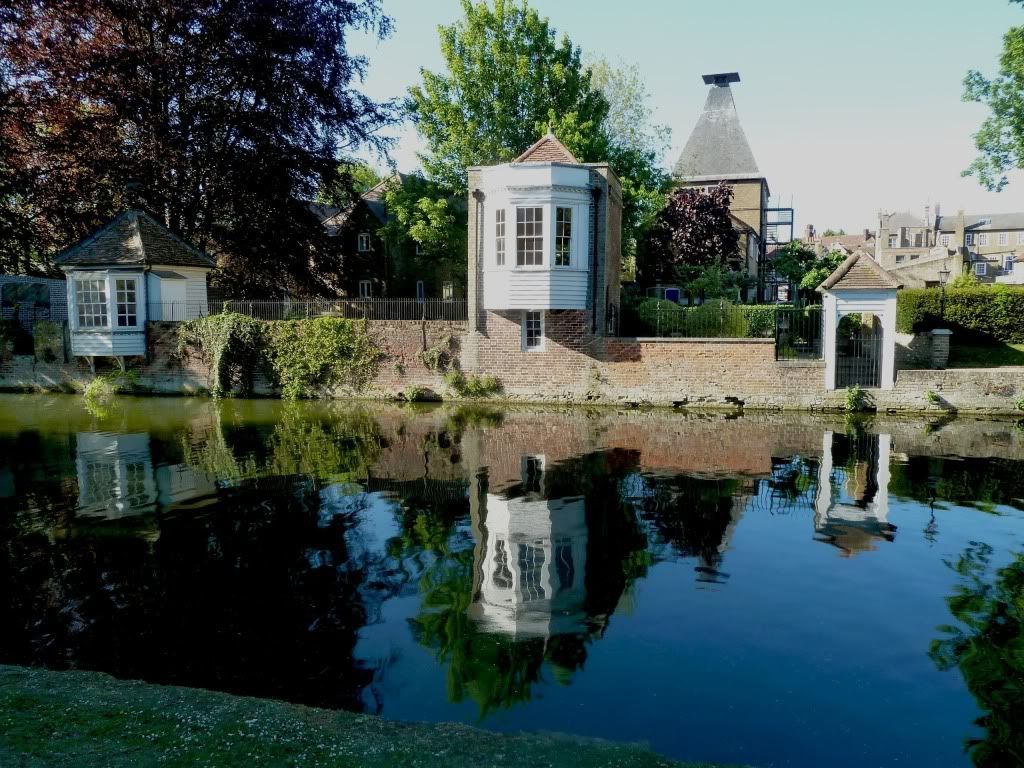 |
| Over the years the ruined gazebos were refurbished and are now a major feature of the town |
 |
| The gazebo with the white horse weathervane from the second picture is triumphantly restored to full galloping order |
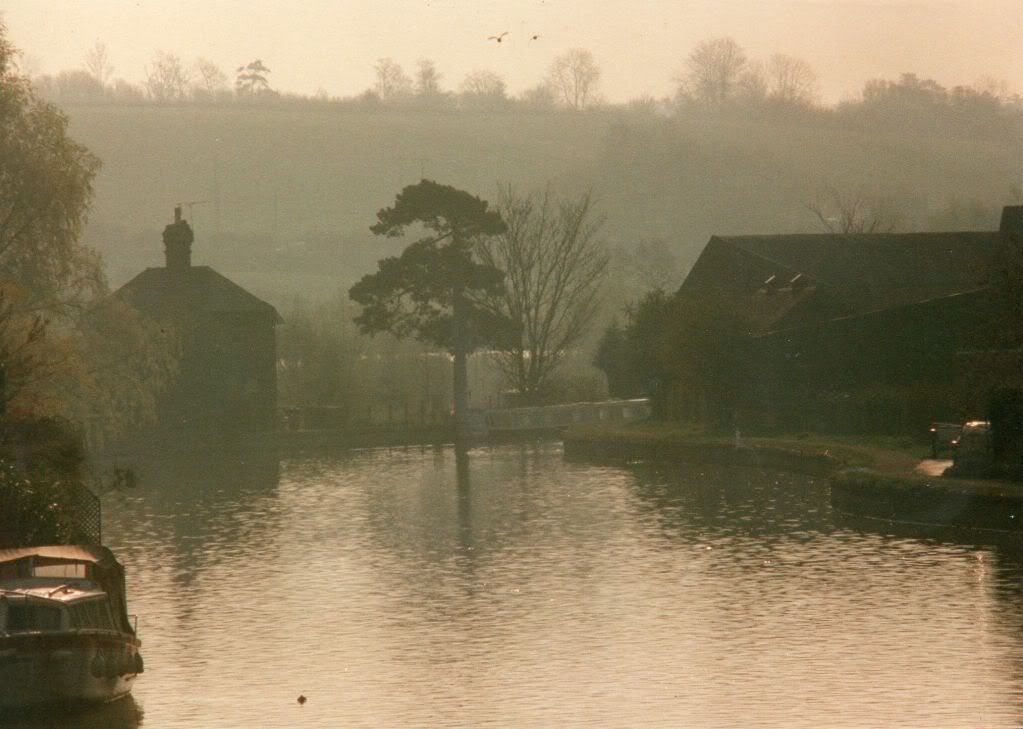 |
| The lock-keeper's cottage on a misty morning, shot with a long lens from the bridge |
 |
| Cheating a bit: my grandad took this, in 1965. That's me on the footbridge, looming over mum and dad. |
